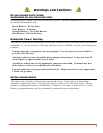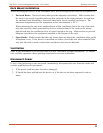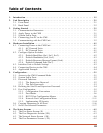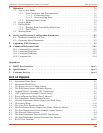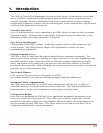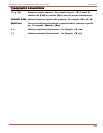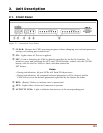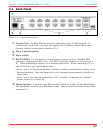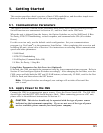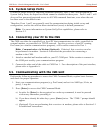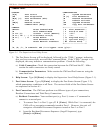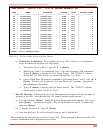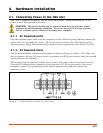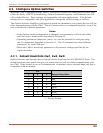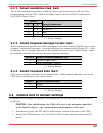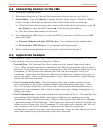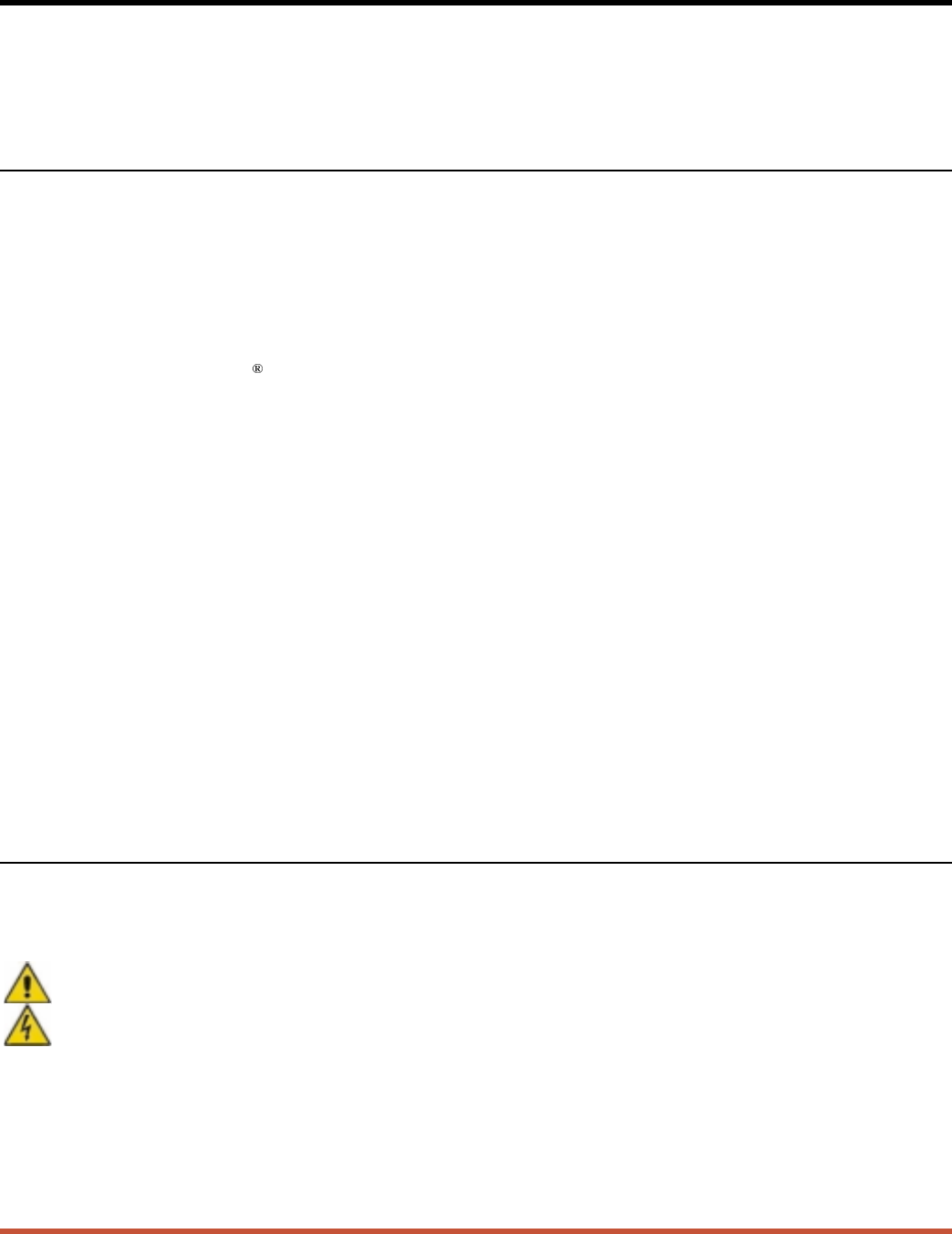
3. Getting Started
This section provides a brief overview of basic CMS capabilities, and describes simple tests
that can be used to determine if the unit is operating properly.
3.1. Communication Parameters
The Option Switches, located on the instrument back panel, select default operating settings.
Switch functions are summarized in Section 4.2, and on a label on the CMS unit.
When the unit is shipped from the factory, the Option Switches are set for 9600 baud, 8 Bits-
No Parity, RTS/CTS handshaking, verbose response, and command echo ON (all switches
Down).
For this overview only, use the default switch configuration. Set your communications
program (e.g. ProComm
) to the parameters listed below. After completing this overview and
installing the unit, please refer to Section 5 for instructions on selecting faster communication
speeds and other parameters.
·
9600 Baud
·
RTS/CTS Handshaking
·
Full Duplex (Command Echo ON)
·
8 Bits, No Parity, 1 Stop Bit
Using Other Parameters for this Overview (Optional):
If desired, the CMS can match the parameters used by your communications program. Refer to
Section 4.2 and configure Option Switches accordingly. After changing the switches, reset the
CMS; press and hold both the SET and CLEAR buttons, release only CLEAR, wait for the Port
LEDs to flash, and then release the SET button.
Note: If Option Switches are changed, new settings will not take effect until the
unit is reset.
3.2. Apply Power to the CMS
Connect the CMS to an appropriate power source. Press the Power Switch ON. The ON LED
should light, and the RDY LED should begin to flash. When connecting power to a DC unit,
please refer to the additional instructions in Section 4.1.
CAUTION: This device should only be operated with the type of power source
indicated on the instrument nameplate. If you are not sure of the type of power
service available, please consult your local power company.
3-1



